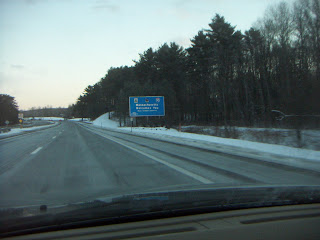Notes from Charlie
This is a slightly rambling multi-topic discusssion of my recent mass transit experiences back in Boston
CharlieCard

Using the new RFID (radio frequency identification)-based CharlieCard is pretty cool, actually. RFID technology is great for this application--I've found that I don't even need to take the card out of my wallet: I just bump my wallet against the contact pad on the bus/turnstile, and it registers. Indy pointed out that you can see the lump in the card where the chip is probably located--I was considering clipping it out, and sewing it into the sleeve of my jacket, so I could just wave my arm over the pad when getting on the bus. Pretty geeky, yeah.
I think some people have privacy concerns about RFID tags--are people trying to track you as you're walking down the street? But as far as I can tell, it seems like the range is pretty limited. So unless people are walking around whacking everyone on the ass with electronic probes, I'm not going to bother putting my card in a metallicized bag.
The MBTA is pushing people towards these cards--the subway and bus fares are slightly discounted using these plastic RFID cards vs. the paper magnetic stripe cards ($1.70 vs. $2.00, and $1.25 vs. $1.50). Also, the transfer system works pretty smoothly--I got on the 77 bus a few blocks after getting off the Red Line at Porter, and the reader read "$0.00 Transfer"--sweet! Also, I think that when I went from the bus to the subway, it charged me only 45 cents, but I could be wrong. Also, now being forced to take the bus, I'm pretty psyched that these cards speed up bus boarding, at least a little bit, reducing total trip time.
The Bus

Being up in Arlington, I'm completely bus-dependent now--I've used the 77 to Harvard via Mass Ave, 79 to Alewife, and 80 to Lechmere. It's not that horrible--I'm glad I can just leave the car in the driveway and not deal with parking in town, and I'm planning on using it for my commute to the office in Porter. But to The Residents of Arlington from the 1970's who decided the Red Line Extension into Arlington was a Bad Thing: screw you, you short-sighted NIMBYist yutzes (two words: Davis Square). The back story, for example, as told on some blog I found while searching for "arlington red line extension":
The original plan in the 70s for the Red Line extension beyond Harvard was to go to Route 128 via Arlington, Arlington Heights and Lexington, presumably via what is now the Minuteman Bikeway. However, the money from the Feds would only pay for the Arlington part. Arlington fought against it due to concerns about increased traffic and development around the terminus, worries about those criminals and vagrants coming from the city to cause trouble, and general NIMBYism. Terminating at Alewife ended up being a decent compromise in retrospect, considering how successful it is. Also, it’s likely that more people use the Minuteman today than would ever ride the Red Line.
Yeah, I'll admit I'm a huge fan of the Minuteman Trail. And I could see major problems if they built the Albert-Speer-school-of-architecture Alewife Station/parking garage (a.k.a. "East Berlin Revival Style") anywhere but a desolate plot of industrial land (out on 128, perhaps?). But having Arlington included in Red Line land (with the subway running under the Minuteman Trail right-of-way) would have been nice.
[Edit: looks like that's what the plan was, according to this website:]
If the Red Line was to be extended it would probably be in a cut and cover tunnel under the Minuteman Bike Path. Most people wanted the Red Line to terminate somewhere around Route 128 and I share this feeling. Originally the idea was to have the line go all the way to Hanscom Airport. This could still be done with a station on Route 128 but another idea is to have the line head north and east to Burlington with a stop in North Lexington and Route 128. This would make more sense seeing there is a large mall in Burlington and Route 3 is right next to it.
Bus Rapid Transit
I had some interesting discussions/arguments with my advisor about Bus Rapid Transit--he is a huge fan, and I am completely opposed to it, given that every instance I have seen is a case of trying to do a light-rail-equivalent on the cheap (or responding to calls for transit in name only) and failing--e.g., the Silver Line. A pretty compelling discussion is on the Wikipedia page. In contrast, my advisor very rarely takes mass transit in Canada, but has spent a lot of time in Europe. There, he found that it works very well, when they have such features as dedicated busways (bus-only) and off-board fare collection (faster boarding). It is his belief that by eliminating the cost of the rail infrastructure, it reduces the overall costs enough that service frequency will be higher. Maybe in Europe, but everything I've seen on this continent points to, "screw you, you don't get rail, here's a bus instead, and you're gonna like it." Also, one important North-America-specific problem with bus rapid transit, which seems pretty unsolvable:
BRT suffers from the serious image problem of buses. Quite often buses of any kind are far less attractive to "choice" riders; i.e., riders who could take transit or drive automobiles but prefer transit for certain trips because of perceived amenities of speed, convenience and/or comfort often found in light rail and subway systems. Bus systems suffer not only from poorer speed and ride quality, but from the perception of buses as a social accommodation — a means of transportation used by those who have no other choice, called "transit dependent." ...
While many BRT systems utilize state-of-the-art buses that differ substantially from traditional buses, light rail systems are perceived of still having a higher travel quality. Some put it bluntly as "a bus is still a bus". Routes that have been converted from BRT to light rail have often seen very large ridership gains.
Like I said, Red Line. Oh well.
One final note--I wandered into a blog called Charlie on the MBTA--it seems to be some type of MBTA ombudsman/information/complaint department. A pretty interesting read, and it seems like the person/people in charge of it are pretty responsive.























